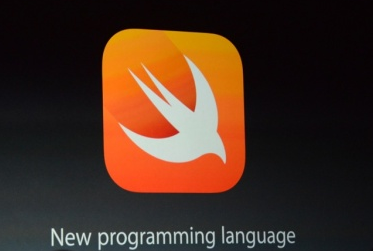The WWDC 2014 keynote has been concluded for several days, but its influence will never come to an end. If you’re an Apple user or lover, you might have been disappointed at the iPhone 6 which was expected to show up in the keynote. Well, there are still a lot of impressive highlights. Then what makes you most impressed among these highlights? The new iOS 8 or Mac OS X 10.10 Yosemite? Well, they absolutely make you mad with joy. But for application developers, what is more important in this conference is Apple’s new programming language – SWIFT.
What is SWIFT?
SWIFT is a compiled programming language released by Apple in WWDC 2014 for iOS and OS X development.
This new programming language must remind you of Objective-C, Apple’s previous main programming language. However Objective-C will be replaced by SWIFT with the release of iOS 8 and Mac OS X 10.10 Yosemite. And here will come the SWIFT era! This may bring disappointment to those who have used Objective-C for a long time. But good news is the two programming languages can coexist in the same application program.

Is this new programming language worth adopting? Take a look at its pros and cons.
Pros:
1. Faster application development speed
As its name suggests, SWIFT means “fast and quick”, and is able to accelerate the development speed of application programs. Meanwhile it can work well with Objective-C and C programming languages. Like scripting languages, SWIFT makes developers read and compile in a more natural way. Actually, a proficient Objective-C developer shall be familiar with this new programming language and they can conduct programming without too many obstacles.
2. Automatic memory management
SWIFT also has the AMM (Automatic Memory Management) function and Apple has made a promise that it can avoid common errors made by developers such as initialization of variables and data overflow.
3. Playgrounds
SWIFT also has the “Playgrounds” preview function, which will save much development time, and reduce possibilities of SWFIT code output error. Before the release of SWIFT, developers need to compile codes to executable programs and this whole compiling process costs too much time, and they fail to find errors until finishing the process. In a word, SWIFT can satisfy the developers’ expectations of instant preview.
Cons:
However, as a new programming language, SWIFT still can’t be deemed as a mature product.
1. New programming language learning for developers
Though SWIFT is quite similar to Objective-C and JavaScript in some aspects, developers still need to spend some time learning its new functions and unique features.
2. Exclusiveness
As a programming language only for Apple developers, SWIFT is not an open product. So for those developers who want to create mobile applications on different devices, they still need to spend too much time as well as too much money creating different app versions for different devices. Apple of course is unwilling to help developers transplant applications to Android and Windows Phone devices.
3. Doubt on error warning and AMM
Some senior developers may throw doubt on SWIFT’s error warning and automatic memory management function, for it is unable to help those new developers master some old but quite important programming ways to develop their comprehensive abilities.
Being conservative is not what we expect from application developers. Old programming languages will affect creation of excellent applications due to too much time on adjusting error codes. If SWIFT can reduce developers’ burden, there will be great innovation and creativity.
If everything goes as planned, SWIFT definitely will help Apple developers create applications with more stability and efficiency at a faster speed.